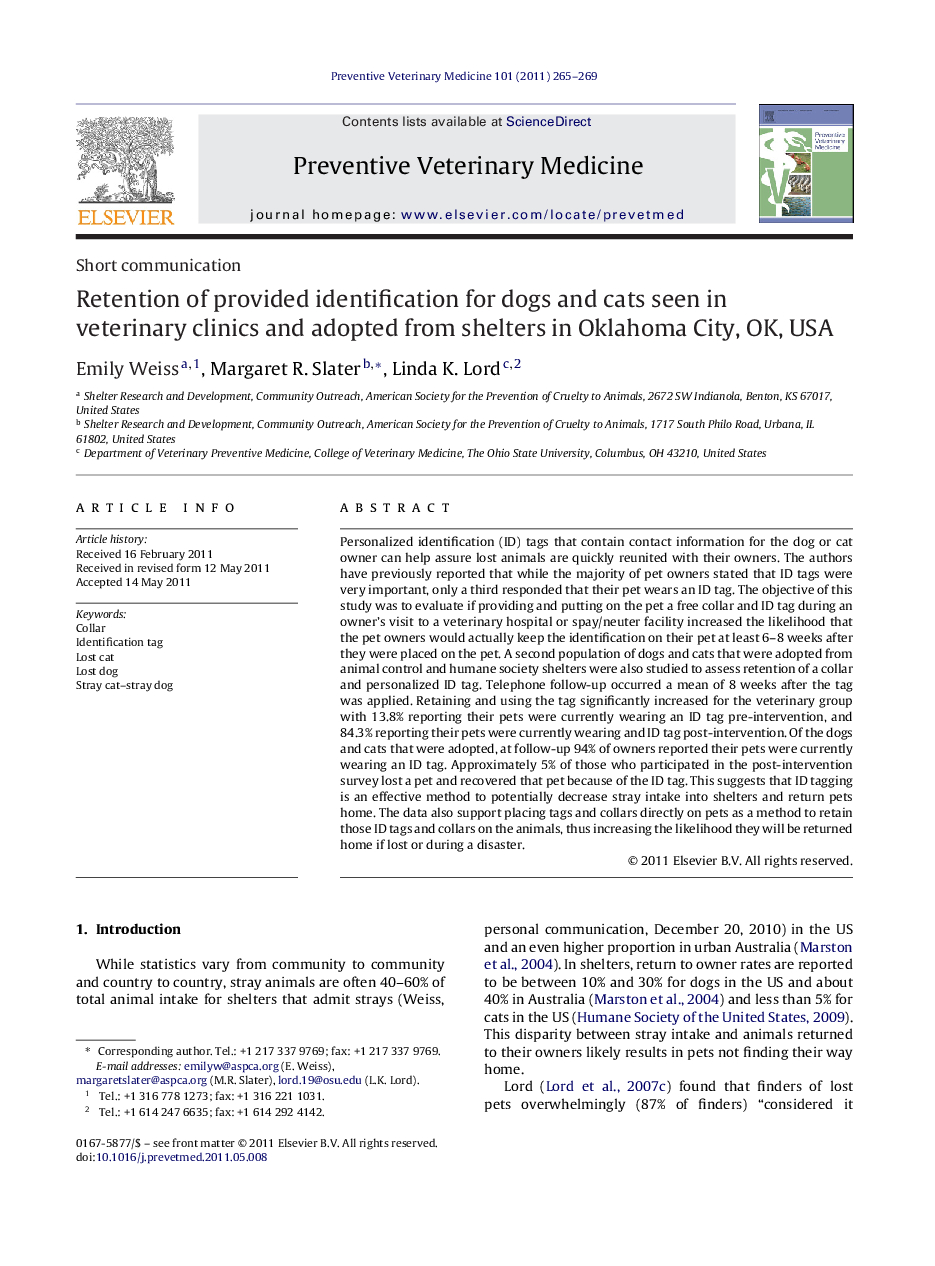| Article ID | Journal | Published Year | Pages | File Type |
|---|---|---|---|---|
| 5793973 | Preventive Veterinary Medicine | 2011 | 5 Pages |
Abstract
Personalized identification (ID) tags that contain contact information for the dog or cat owner can help assure lost animals are quickly reunited with their owners. The authors have previously reported that while the majority of pet owners stated that ID tags were very important, only a third responded that their pet wears an ID tag. The objective of this study was to evaluate if providing and putting on the pet a free collar and ID tag during an owner's visit to a veterinary hospital or spay/neuter facility increased the likelihood that the pet owners would actually keep the identification on their pet at least 6-8 weeks after they were placed on the pet. A second population of dogs and cats that were adopted from animal control and humane society shelters were also studied to assess retention of a collar and personalized ID tag. Telephone follow-up occurred a mean of 8 weeks after the tag was applied. Retaining and using the tag significantly increased for the veterinary group with 13.8% reporting their pets were currently wearing an ID tag pre-intervention, and 84.3% reporting their pets were currently wearing and ID tag post-intervention. Of the dogs and cats that were adopted, at follow-up 94% of owners reported their pets were currently wearing an ID tag. Approximately 5% of those who participated in the post-intervention survey lost a pet and recovered that pet because of the ID tag. This suggests that ID tagging is an effective method to potentially decrease stray intake into shelters and return pets home. The data also support placing tags and collars directly on pets as a method to retain those ID tags and collars on the animals, thus increasing the likelihood they will be returned home if lost or during a disaster.
Keywords
Related Topics
Life Sciences
Agricultural and Biological Sciences
Animal Science and Zoology
Authors
Emily Weiss, Margaret R. Slater, Linda K. Lord,
